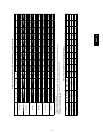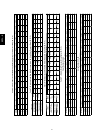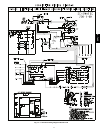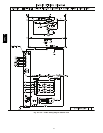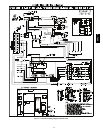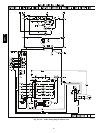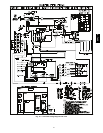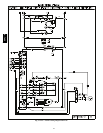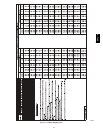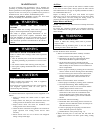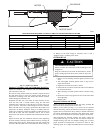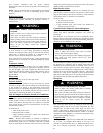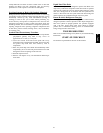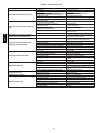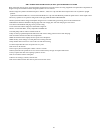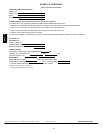
27
readily. POE oils can absorb 15 times as much water as other oils
designed for HCFC and CFC refrigerants. Take all necessary
precautions to avoid exposure of the oil to the atmosphere.
Servicing Systems on Roofs with Synthetic Materials
POE (polyolester) compressor lubricants are known to cause long
term damage to some synthetic roofing materials. Exposure, even if
immediately cleaned up, may cause embrittlement (leading to
cracking) to occur in one year or more. When performing any
service that may risk exposure of compressor oil to the roof, take
appropriate precautions to protect roofing. Procedures which risk
oil leakage include, but are not limited to, compressor replacement,
repairing refrigerant leaks, replacing refrigerant components such
as filter drier, pressure switch, metering device, coil, accumulator,
or reversing valve.
Synthetic Roof Precautionary Procedure
1. Cover extended roof working area with an impermeable
polyethylene (plastic) drip cloth or tarp. Cover an
approximate10x10ft (3x3m)area.
2. Cover area in front of the unit service panel with a terry
cloth shop towel to absorb lubricant spills, prevent run--offs,
and protect drop cloth from tears caused by tools or
components.
3. Place terry cloth shop towel inside unit immediately under
component(s) to be serviced and prevent lubricant run-- offs
through the louvered openings in the unit base.
4. Perform required service.
5. Remove and dispose of any oil contaminated material per
local codes.
Liquid Line Filter Drier
The filter drier is specifically designed to operate with Puron. Use
only factory--authorized components. Filter drier must be replaced
whenever the refrigerant system is opened. When removing a filter
drier, use a tubing cutter to cut the drier from the system. Do not
unsweat a filter drier from the system. Heat from unsweating will
release moisture and contaminants from drier into system.
Puron (R--410A) Refrigerant Charging
Refer to unit information plate and charging chart. Some R -- 410A
refrigerant cylinders contain a dip tube to allow liquid refrigerant to
flow from cylinder in upright position. For cylinders equipped
with a dip tube, charge Puron units with cylinder in upright
position and a commercial metering device i n manifold hose.
Char ge refrigerant into suction--line.
TROUBLESHOOTING
Refer to the Troubleshooting Chart (Table 10) for troubleshooting
information.
START--UP CHECKLIST
Use the Start--Up Checklist at the back of this manual.
50VL--A



